The Year in Review: A Political Analysis
December 11, 2017
If 2017 had a face, its expression would almost certainly be a contorted mix of fear and anger. This year has been rough for all Americans and the worst thing we can do right now is let ourselves fall apart. We are more polarized than we have been for a long time, and we cannot let these divisions tear the fabric of our nation.
Where is the tear? Everywhere. The divide exists in the political assemblies of Washington DC. The divide exists in the streets of our cities. The divide exists in our classrooms and lecture halls, seeping even into our very households.
The New Face of America
On Jan. 20, President Donald Trump was inaugurated into office. This event reflects several key developments in our national identity. For one, Trump is a businessman with no prior political experience. His election as president implies enough Americans feel that his strategies in business are applicable to national politics. While that may well be true, it raises the question: has our system of government evolved into a business of its own? How much power and influence do private entities possess when it comes to the political and legislative affairs of the nation? Trump’s inauguration exemplifies that there is more than one path to a position of great political influence and highlights how such a path is much easier with wealth.
Love Trumps Hate
The day after the inauguration many Americans took to the streets in the Women’s March. “[It was] likely the largest single-day demonstration in recorded U.S. history,” reported the Washington Post in their analysis published Feb. 7. The march drew somewhere between 3 to 4 million participants nationwide, according to estimates from the public database Crowd Counting Consortium (CCC). People from a plethora of backgrounds protested in support of human rights, equality and diversity. The event was significant not only due to its size, but because it set the precedent for a great many like-minded protests that would follow throughout the course of the year.
Solidarity on one hand is positive. People are always stronger together. In the protests of 2017, we have seen many different activist groups come together. On the other hand, the past few years has also seen a resurgence of solidarity in hate groups, especially those who are part of the alt-right. Reports of hate crimes have also been on the rise, after a period of general decline.
For reference, a hate crime is any “criminal offense against a person or property motivated in whole or in part by an offender’s bias against a race, religion, disability, sexual orientation, ethnicity, gender, or gender identity,” as defined by Federal Bureau of Investigation.
To say that President Trump is the cause for the rising frequencies of such offenses would not be accurate. According to data from the FBI Uniform Crime Reporting Program, there was a brief dip during 2014 where the nationwide total of reported hate crimes reached a low point before beginning to climb again. In other words, the recent increase in tangible hate began several years before the inauguration of President Trump.
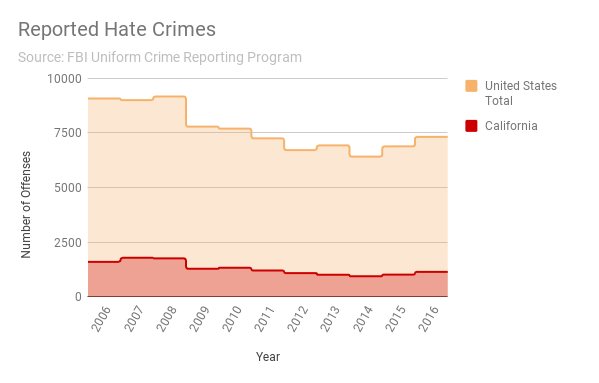
All these occurrences hint at a change in American attitudes, perhaps the very one that helped get Trump elected in the first place. Rather than a cause, I would argue Trump’s presidency to be a byproduct. Both Trump’s election and the intensified manifestation of hate stem from an influx of fear and prejudice in our country. The abundance of ignorance only makes matters worse.
Why are people afraid? All of us can testify to a degree that we are fearful of loss—be it loss of people, possessions, or position. The latter-most can however can be dangerous, especially in the hearts of the inherently privileged. The very social position we may fear to lose may be one that someone else hasn’t had the chance to have in the first place. We must keep our fears in check, lest they morph into something far uglier.
Why are people prejudiced? Because they lack perspective and understanding of those who are different from them. Again we all have our prejudices simply because we all are different. The key is to spend time getting to know people who are different from us and who may disagree with us. This doesn’t mean we cannot respect them as human beings and be friends with them. One of the strengths of our country is its diversity. The best thing you can do in high school and college is broaden your perspective and develop connections with people who are different than you.
And while he may not be the initial cause, our president has been contributing to the problem. Trump has repeatedly promoted various forms of intolerance via Twitter. On Jul. 26 he tweeted that “the United States Government will not accept or allow Transgender individuals to serve in any capacity in the U.S. Military,” on the basis of “tremendous medical costs and disruption.” Then Oct. 23, he tweeted his criticism of NFL players for kneeling in protest of racial inequality and police brutality in America, going on to later denounce quarterback Colin Kaepernick with a vulgar epithet. Most recently on Nov. 29, Trump retweeted anti-Muslim videos from the British politician Jayda Fransen, a person known for her Islamophobic attitudes. And while I will refrain from digressing into the multitude of Trump’s other credibility-undermining tweets, these three instances exemplify the way Trump is doing the opposite of what he should be, which is promoting tolerance and civil liberties in America.
Two Rights Don’t Make a Wrong
Politically speaking, it is the federal government’s responsibility to protect our rights. According to the FBI, federal civil rights statutes “are designed to protect the civil rights of all persons—citizens and non-citizens alike—within U.S. territory.” The Trump Administration, sadly to say, is not fulfilling this responsibility.
For the LGBTQ+ community, the Trump Administration’s policies have hit especially hard. On Oct. 5, the very same day as Trump’s tweet on transgender people’s role in the military, “the Justice Department argued [in a court case] that the civil rights law did not apply to cases of discrimination based on sexual orientation,” as reported by the Los Angeles Times. In early October, the Justice Department led by Attorney General Jeff Sessions went a step further by asserting that Title VII of the Civil Rights Act does not protect against workplace discrimination with regards to gender identity, a decision that will hurt trans employees. This is a deliberate change in policy from the previous administration, which sought to protect such rights.
Discrimination is simply not acceptable. Whether or not you agree with a person’s gender identity or sexual orientation, that is no platform upon which to discriminate against them. It is shameful that our government is not doing more to protect against the violations of civil rights.
Some people may argue that civil rights like marriage equality go against their moral beliefs and even attribute those “traditional” values to our national identity, denouncing certain rights as “un-American.” And while I would encourage everyone to develop their own moral character, we should not let our beliefs interfere with other people’s lives. The fact of the matter is that civil rights grant us the freedom to have moral values such as religious beliefs and personal philosophies in the first place. Forcibly imposing your values onto another person is a form of oppression, a violation of individuality and the exact opposite of what our country stands for.
Americans need to learn to coexist with one another. We each have our rights and we need to respect them as we would personal boundaries. What makes America great is the ideology that we all have the freedom peaceably live our lives as we see fit and look out for one another even when we disagree.
Borders and Margins
We all hate the feeling of being left out, and so we should be fostering feelings of inclusiveness and not xenophobia. Immigration brings new cultures, experiences, and ideas. These are something we should embrace rather than be fearful of. Nevertheless, the Trump Administration seems to think otherwise.
In January, the president signed an executive order that placed a ban on travel from seven Arab countries. Then after a year of contentions, the Supreme Court approved the third major revision of the travel ban on Dec. 4 . “The court’s orders mean that the administration can fully enforce its new restrictions on travel from eight nations, six of them predominantly Muslim,” reported the New York Times on the same day. “The restrictions vary in their details, but in most cases, citizens of the countries will be unable to emigrate to the United States permanently and many will be barred from working, studying or vacationing here.”
Additionally, the Trump Administration took steps to rescind protections for undocumented immigrants who came to the United States as kids. In September, the president ended DACA with a six-month grace period during which potential legislation can be made regarding immigration reform. The people who applied to DACA unfortunately put themselves in a vulnerable position by revealing their personal information in the belief that they would be protected. In an article published Sep. 6, the New York Times explains how “they were required to provide the federal government with detailed information about themselves and their parents — names, addresses — in order to gain work permits, driver’s licenses and other benefits of deferred action.” To suddenly take away that protection without a definitive replacement is truly a betrayal of trust.
The Trumpian philosophy of American greatness appears to be one without immigrants, especially those of Hispanic and Muslim origin. I find it hard to believe that Trump’s policies are not being influenced by his racist attitudes, which consistently manifest themselves in his speeches and tweets. And to anyone who points out a terrorist or a criminal, I would consequently point out a hundred-fold as many students, parents, and employees working hard to achieve their dreams in a country that holds so much more opportunity than the one they emigrated from. Ultimately we are all human beings. Nationality and race are just abstract systems of organization and shouldn’t be a reason to push people away.
From a practical point of view, we should be reinforcing the infrastructure from the inside outwards, not the other way around. Instead of devoting resources to building walls, the government should be working on internal improvements in domestic systems of healthcare, education, employment, and housing. And as students, regardless of immigration status, we can study hard to acquire the skills needed to make those changes in our country.
The Eruption of Violence
When it comes to resolving our differences, violence should be the last option. Unfortunately this August, tensions escalated violently in Charlottesville, Virginia. At a rally that attracted many members of the alt-right, including white nationalists and neo-Nazis, fighting broke out between the protesters and counter-protesters. “Everywhere, it seemed violence was exploding,” recounted Washington Post writer Joe Heim on Aug 14. “The police did not move to break up the fights.”
What is the significance of these events? First of all, government institutions need to do more to monitor the behaviors of documented hate groups. Once groups are identified, they should be investigated thoroughly. While the First Amendment protects freedom of speech and assembly, there are still limits. People are free to say whatever they please, but the line should be drawn once that speech promotes any form of organized hate or instigates violence. And in the case that the hateful speech is still protected by legal definition, then it falls to communities to ostracize and remove all support for the individuals in question. If we cannot uproot certain weeds, the next best option is to avoid watering it. Secondly, the police should have come in to buffer the fighting sooner. The moment a demonstration becomes violent, regardless of its stated cause, it needs to be immediately shut down by law enforcement. In today’s America, the upholding of peace is paramount. Third and most importantly, violence is not going to solve anything. Fighting each other may change outward conditions but not people’s hearts. By brawling with the alt-right protesters, the counter-protesters were ineffective because they gave the protesters exactly what they wanted. Violence just stirs up more anger and hate.
Long Awaited Vocalization
To end on a positive note, this year has been pockmarked with sexual harassment allegations and the fact that victims are finally speaking out is good. Sexual harassment is never justifiable and no one— regardless what their position in society may be—should be immune from the consequences of their actions.
On social media, the hashtag #MeToo has been trending in popularity and usage. Originating from a tweet by actress Alyssa Milano that read, “If you’ve been sexually harassed or assaulted, write ‘me too’ as a reply to this tweet,” the online movement has quickly gained momentum and is encouraging people to open up about their experiences concerning a conventionally taboo topic. According to Milano, the #MeToo movement will help “give people a sense of the magnitude of the problem.”
Now this is the way to go about solving our divisive issues. Use your voice and not your fists. In this critical point of our nation’s history, peaceful discussion is the needle and thread we can use to mend the tears. And you don’t have to be on a Congressional committee to talk things through. There are many ways to have this discussion, whether it involves posting on a social media thread, speaking up in a classroom forum, sitting down to have a discussion with your parents, or expressing your viewpoints in a publication.
In Conclusion
Let’s use the new year as an opportunity to look not at others but first at ourselves. Let’s reflect on our own goals and values and inward state of being. If 2017 has been the year of criticism and debate, let’s make 2018 the year of introspection and discussion. Let’s strive towards unity not division, love and not hate. Let’s enjoy the holidays with both your family and community, and take the new year as a fresh start for both ourselves and our country.
Update (Jan. 12, 2018): Hate group statistics from the Southern Poverty Law Center have been removed.

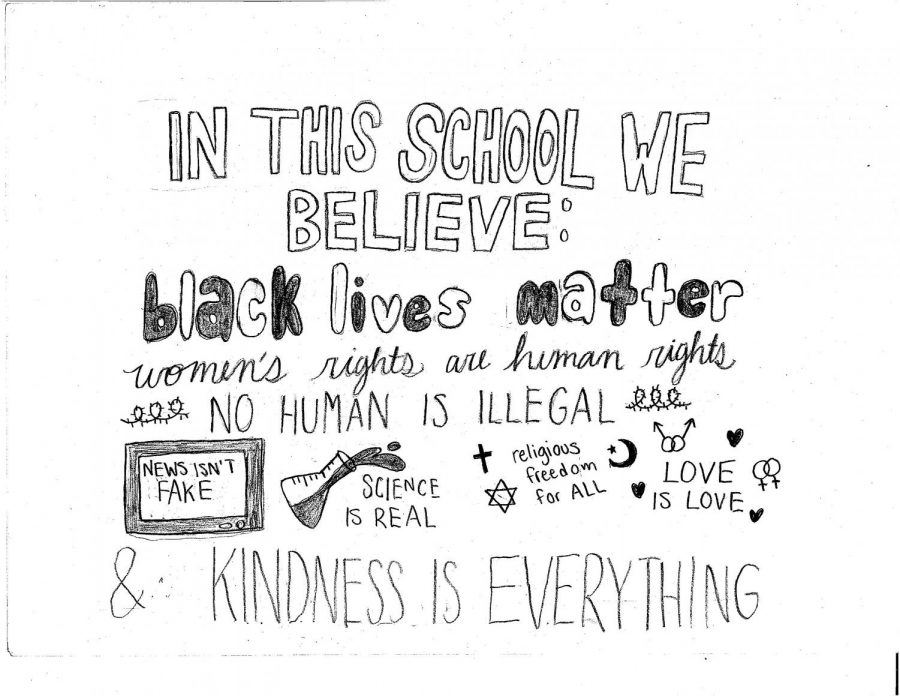

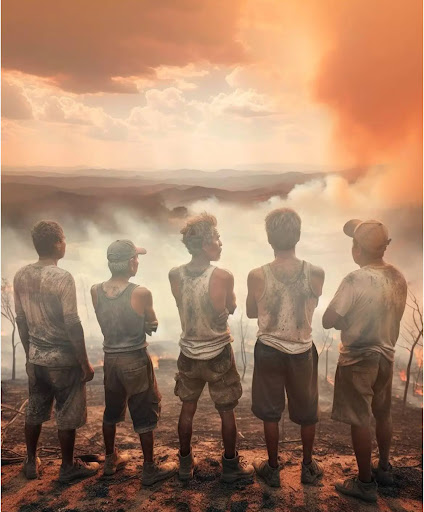

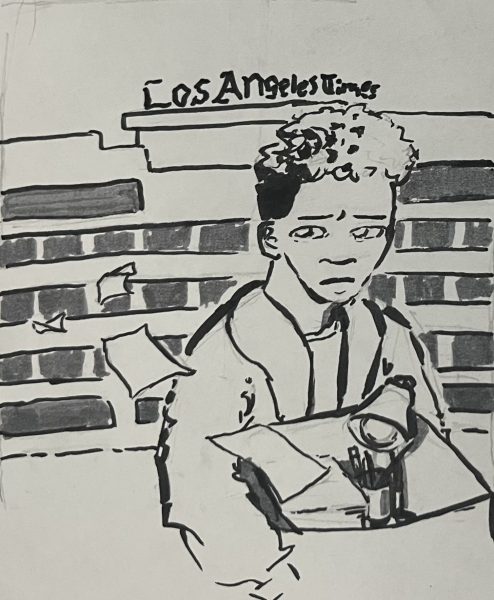



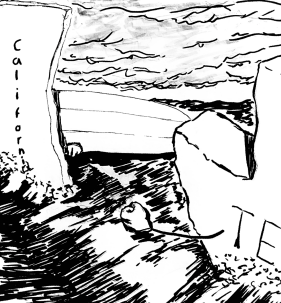
Richard Keefe • Dec 13, 2017 at 4:25 AM
“The number of documented hate groups has had an increasing trend over the past decade, as reported by the Southern Poverty Law Center. ”
One needs to take SPLC “facts” with a very large grain of salt. In the first place, the SPLC does not “document” its alleged “hate groups.” The company provides no information for any of its alleged groups that a journalist or researcher could use to verify their existence.
The SPLC cannot provide information regarding the size or membership of most groups and it cannot even provide a known city or town location for 191 of its alleged groups, or nearly one-in-four. We just get to take the SPLC’s word for it that these groups really, really exist.
That’s not good enough and it certainly isn’t good journalism.
This year the village of Amana, Iowa disputed the SPLC’s designation of a “hate group” in that small town. The SPLC replied that it made the claim after finding a single troll post on a neo-Nazi website that a group of Nazi-wannabes met ONCE at an Amana coffee shop but never came back again.
Gurnee, Illinois, also fought back against its “hate group” designation. The SPLC’s scrupulous reasoning for targeting that community: “Gurnee police and village officials said they have been told by the law center that the village was included after the center found that someone who listed his address as Gurnee had registered on a KKK website.”
That’s all it takes. An unsubstantiated rumor and suddenly your town, your city, your state gets smeared with a meaningless “hate group” label.
Even the Anti-Defamation League cannot swallow the SPLC’s unvetted “hate group” claims:
“According to Mark Pitcavage, director of investigative research at the Anti-Defamation League (ADL), the SPLC has a habit of counting single individuals as groups or chapters, which can give a skewed impression of hate groups in any given state.”
“The Southern Poverty Law Center’s list is wildly inflated,” said Pitcavage. “They list skinhead groups in places where there are no organized groups, but instead it’s just a couple of individuals.”
http://wp.me/pCLYZ-p9
The SPLC counted ACT for America exactly once in 2015 but 45 times for 2016. In 2015, the SPLC recognized exactly one chapter of Daily Stormer, a one-man website out of Ohio that SPLC Intelligence Director Mark Potok described as “mostly Andrew Angelin, his dog, and a computer.”
http://www.esquire.com/news-politics/a50259/hate-groups-to-do-lists-for-election-day/
For 2016, Mr. Potok claims there are 31 Daily Stormer websites in the land. How does that work? Did Angelin franchise his one-man website and sell local territories? Maybe the dog had puppies.
Texas alone went from five alleged Klan chapters in 2014 to FIFTY chapters in 2015 to nine chapters in 2016, according to the SPLC. Really?
In short, the SPLC’s “hate group” claims are for fundraising, not fact-finding. Good journalism means vetting your sources before citing them as “fact.”
Desmond Andersen • Jan 12, 2018 at 2:59 PM
Thank you Mr. Keefe for your thoughtful feedback. As a student journalist, I am constantly learning. I will avoid using the Southern Policy Law Center for statistical data, and will make sure to spend more time evaluating the credibility and biases of other sources. I will update the story accordingly.